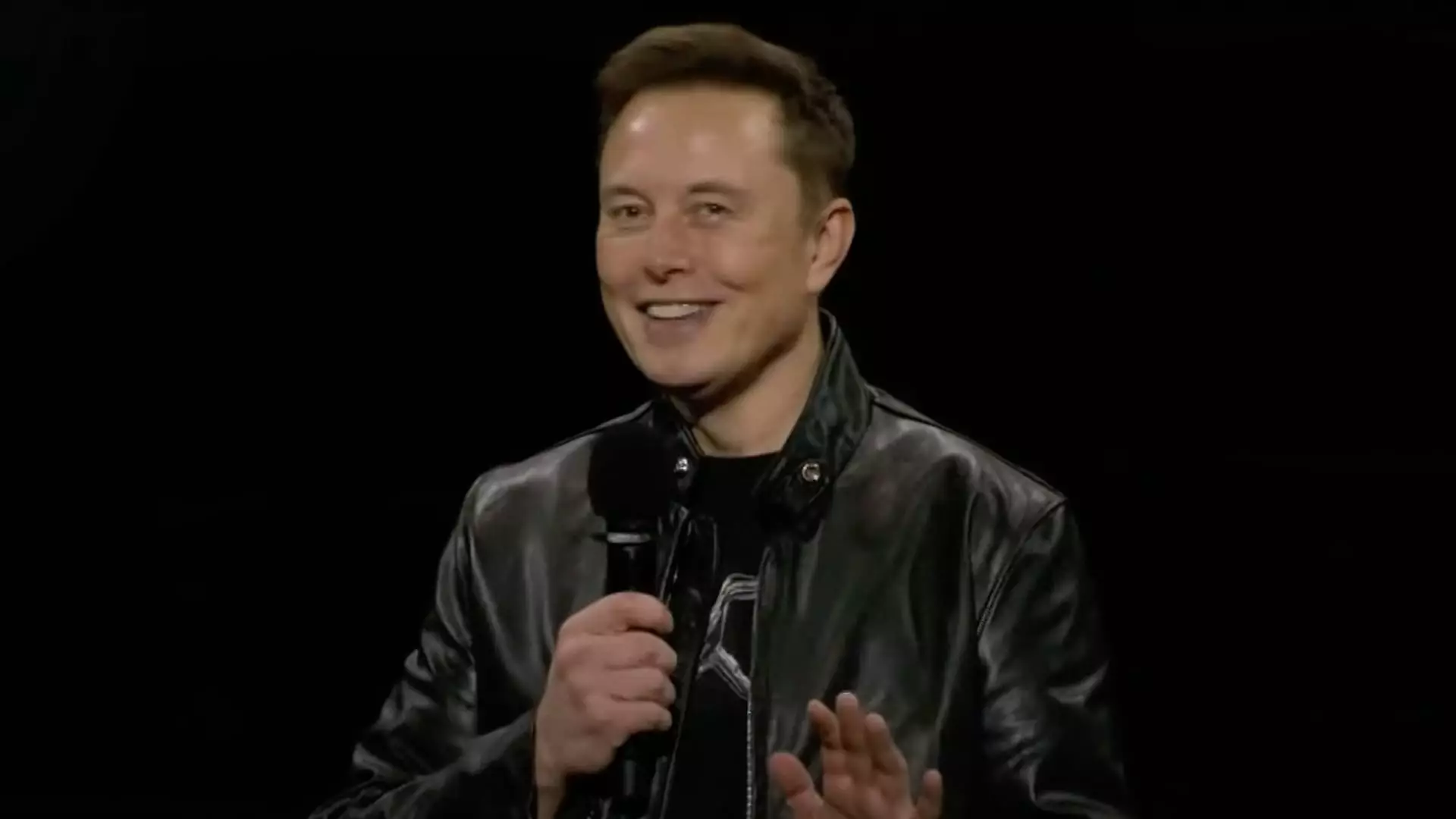Elon Musk, an emblematic figure in modern technology and entrepreneurship, continues to capture headlines, not just for his audacious ventures but also for the staggering implications of his wealth. Recently, he witnessed an enormous surge in his financial standing—an increase of $26 billion in a single day, propelled primarily by Tesla’s impressive quarterly earnings. This marked the company’s largest stock rally since 2013, positioning Musk’s net worth at an astronomical $269 billion, according to Forbes. Yet, the ascent of Musk’s wealth is as multifaceted and layered as his business endeavors.
The financial gains Musk realized stemmed from a robust earnings report. Tesla announced an earnings per share of 72 cents, surpassing analyst expectations of 58 cents. The rise in stock prices—up 22% by the close of trading—outweighed the company’s earlier struggles throughout the year. Before the earnings call, Tesla shares were en route to experiencing their worst performance since January, raising questions about the stability of both the company and Musk himself.
Musk’s fortune is anchored predominantly in his stake in Tesla, where he holds around 13% of outstanding shares. However, his financial portfolio extends beyond Tesla; he has substantial investments in SpaceX, which is currently valued above $200 billion in private markets, and owns significant assets in X, formerly known as Twitter, along with a budding venture in artificial intelligence labeled xAI. Therefore, while Musk’s financial ascent is notable, it is essential to understand that it is part of a broader ecosystem of technology and innovation that he has cultivated.
Despite Musk’s financial triumphs, his wealth accumulation is not devoid of controversy. His leadership at Tesla and his public engagements have raised eyebrows, particularly concerning his political involvement. Recently, Musk has made headlines for his campaigning efforts in support of Donald Trump, even going so far as to organize initiatives that reward participation in his agenda. His promise of awarding $1 million a day to registered voters who support his political action committee reflects a zealous approach to influencing the electoral process. However, such actions are not without repercussions; the U.S. Department of Justice has raised alarms that Musk’s methods may contravene federal election laws.
This intertwining of business and political activism has resulted in a divided perception of Musk. While shareholders appreciate the philanthropic nature of his initiatives and ability to drive value, retail investors express concern about how partisan activities might tarnish the brand’s reputation and affect shareholder value. The apprehension surrounding Musk’s political involvements raises critical questions: How should a CEO balance personal beliefs with corporate responsibilities? Is it wise for a business leader to navigate the charged waters of current politics in pursuit of influence and support?
A Future Undefined: Promises and Projections
Musk’s recent statements about Tesla’s trajectory regarding autonomous vehicle technology present another layer of complexity. The expectations he sets for a 20% to 30% growth in vehicle production could entice investors but also highlight Tesla’s ongoing challenges in delivering on its promises. Despite the optimism expressed during the earnings call, the reality remains that Tesla has yet to roll out a fully autonomous vehicle that operates safely without human oversight.
Even as he champions Tesla’s ambitious projects like the Cybercab and a purported ride-hailing service slated for Texas and California, the stark contrast between promise and current capability raises skepticism. Comparatively, other companies like Alphabet’s Waymo have established operations while Tesla continues to grapple with developmental hurdles. This gap between ambition and reality could provoke disillusionment among investors should projected timelines continue to slip.
The Balancing Act of Innovation and Responsibility
Ultimately, the narrative of Elon Musk’s wealth, business enterprises, and political engagements encapsulates a broader commentary on modern capitalism’s complexities. With an ever-expanding portfolio and escalating public presence, Musk embodies both the potential for unprecedented wealth creation and the inherent risks of crossing ethical and regulatory lines.
As stakeholders in an increasingly interconnected world, the implications of one person’s actions reverberate across multiple sectors—be it technology, finance, or political landscapes. The evolution of Musk’s empire poses challenging inquiries into leadership and accountability. For investors, consumers, and observers alike, the journey ahead remains uncertain, filled with the promise of innovation accompanied by the specter of controversy.

